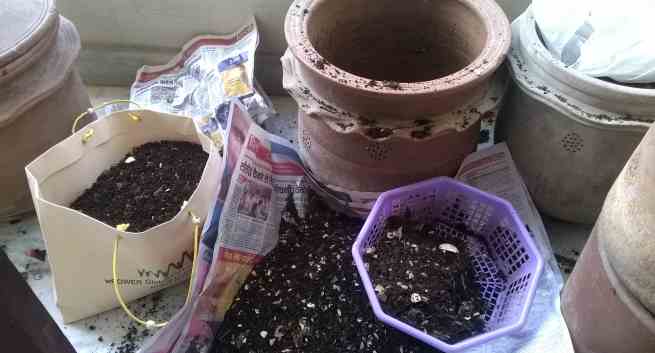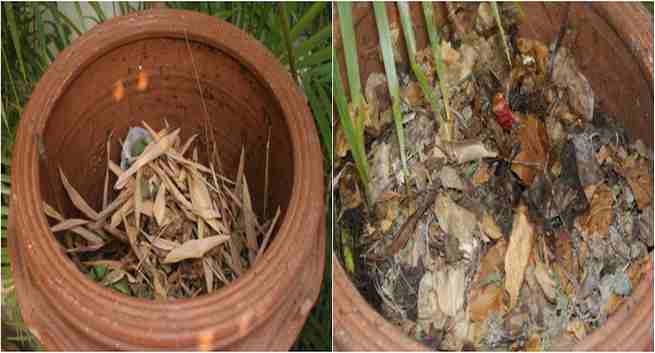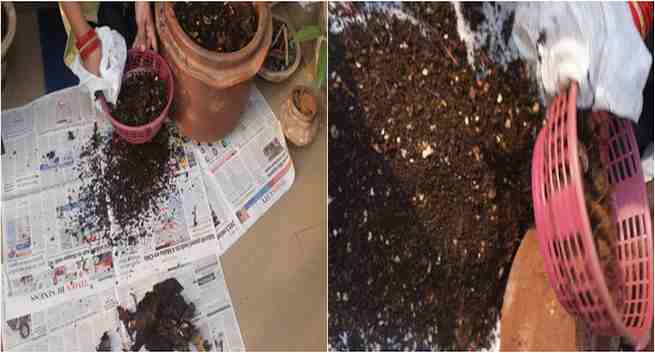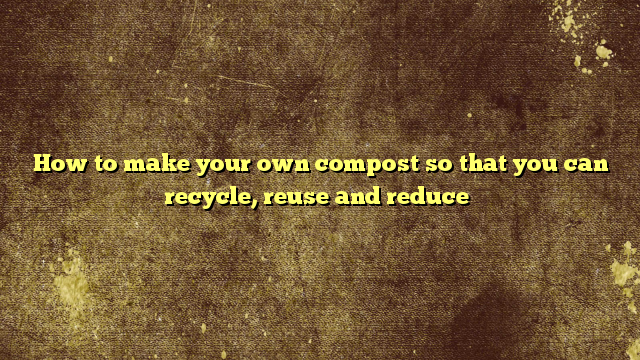Cleanliness is next to Godliness. Stay clean and keep your environment clean. So simple. Yet so terribly complex in India. One of my composting peers in Gurgoan, Vibha, told me once, ‘Many things have made life easier. Packaging for instance- namkeens, biscuits etc. But we rarely stop to think while buying things – what are you adding to your waste. Each bag that is thrown out of homes every day contains around 50-60 per cent organic waste and around 25-30 per cent of recyclable waste.’
Logically, if these are separated and put to use through composting and recycling, we can reduce the amount of waste that we send to city landfills every day. Long before I became an obsessive composter, I read this story in Kenya, where organic manure from Nairobi was being transported to surrounding villages. This was keeping the city organic garbage free and it’s impact on the villages was better soil quality and better harvest! Thinking of going natural? Here are natural ways to keep your house pest-free.
This is relatively simple. It could help create more dignified jobs in recycling and composting, could help save money and energy, since you are not making glass, paper, and plastic from raw materials but from used materials and saves natural recourses like trees, minerals and habitats. Here’s a DIY air freshener you should try.
As the Swachh Bharat slogan fails to bring shiny Cities to the fore, it is really time for tried and tested solutions to be leveraged. Here are things that we can do ourselves:
1.Know your waste. What you buy and how you will dispose of it. THINK!
2. Create separate dustbins at home.
3.Organic waste turns into rich compost. You can use the compost for your garden.
4. Find the way to handle it – I actually send it to Bhopal since I live in a tiny apartment in Delhi that has just about five flower pots.
5. Clean and store all the recyclable waste to sell and recycle. This waste can be sold to radiwallas and some of it can be reused.
6. Collect each category separately and dispose through the right agencies. In the larger cities contact your local e-waste agency, who will pick up your toxic wastes, and dispose of them safely.
7. Hazardous waste should be treated before it can be sent to the landfill.
All of it can be reduced if you think carefully before you buy. Among the traditional practices that I saw as a child – my father/uncles asking for the ‘bazaar’ cloth bag when they went to buy groceries – separate bags for squishy vegetables/the non-vegetarian stuff should all be revived. I do see many women carrying cloth bags in their purses so that they can carry back vegetables on the way back home from work – POWER to more of these.

It’s not impossible!
When Shashi, my househelp first came to work with our family – she was polite yet firm, ‘I know only how to make simple roti, dal and subji. Do not expect 17 dishes from me.’ We took her word and left it at that. Two years down Shashi has taken to composting the dry leaves that are the telltale of my husband’s green thumb.
The simple khambh which I used to manage before moving to Delhi has found a dedicated manager and over the past year Shashi has managed to produce buckets full of excellent manure.
The first day’s discussion about how she would need to round up the leaves and put it into the khamba so that that the dry leaves did not create an issue for neighbours, did not have Shashi one bit confused. She looked at the last section of the khambha where the blackish organic manure was ready for use and complimented me, ‘Didi this is very good manure.’
Since then she has kept a keen watch. Overcoming the initial hitches of how dry or how moist to keep the dry leaves, she seems to have found the balance. Here’s the khamba we use at home and how to use it:

Step 2 : The Baby steps

Step 3:

Step 4:

The author, Sushmita Malaviya works with PATH in New Delhi, was a journalist and is now an obsessive composter.
Image source: Author
























No Comments